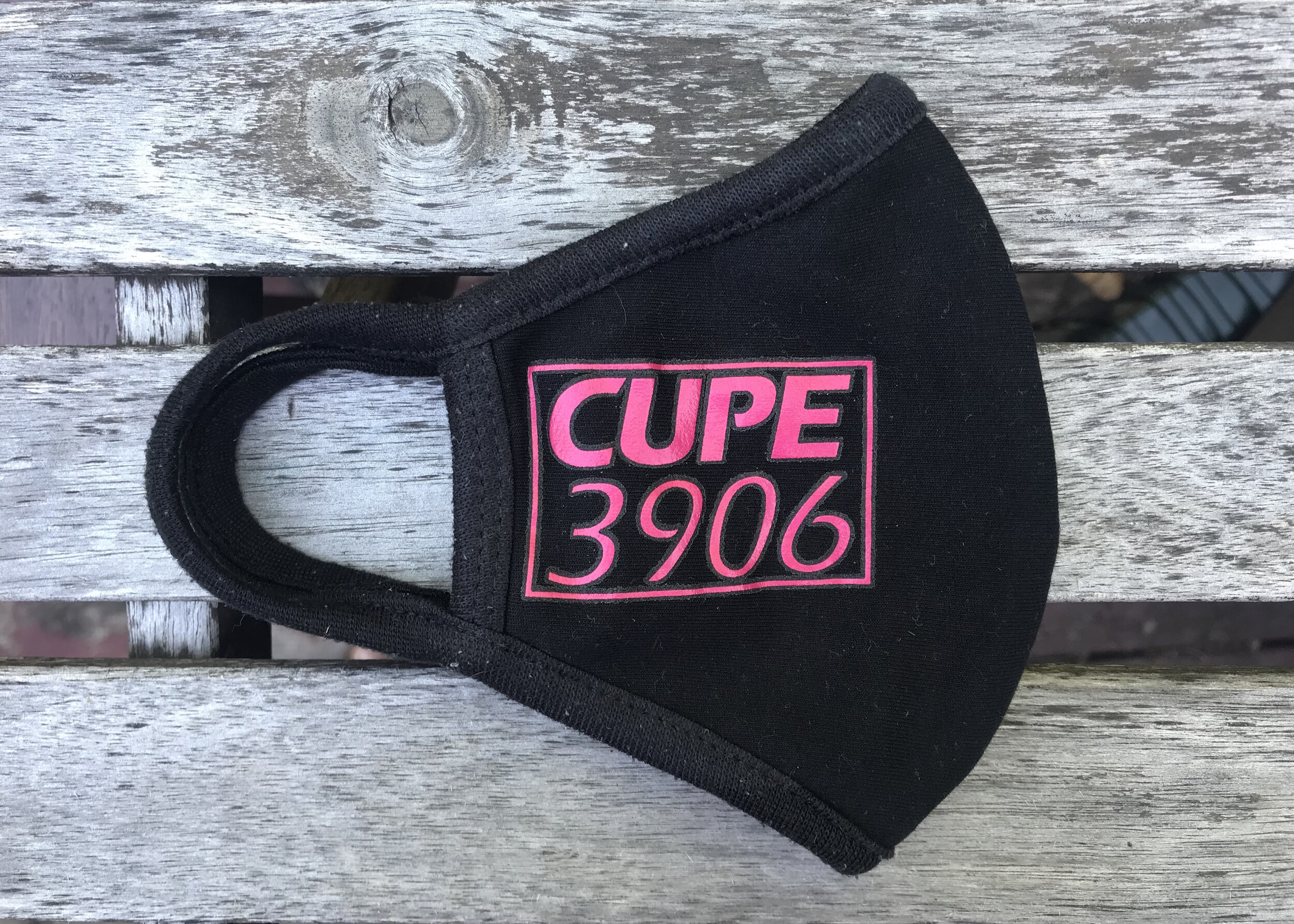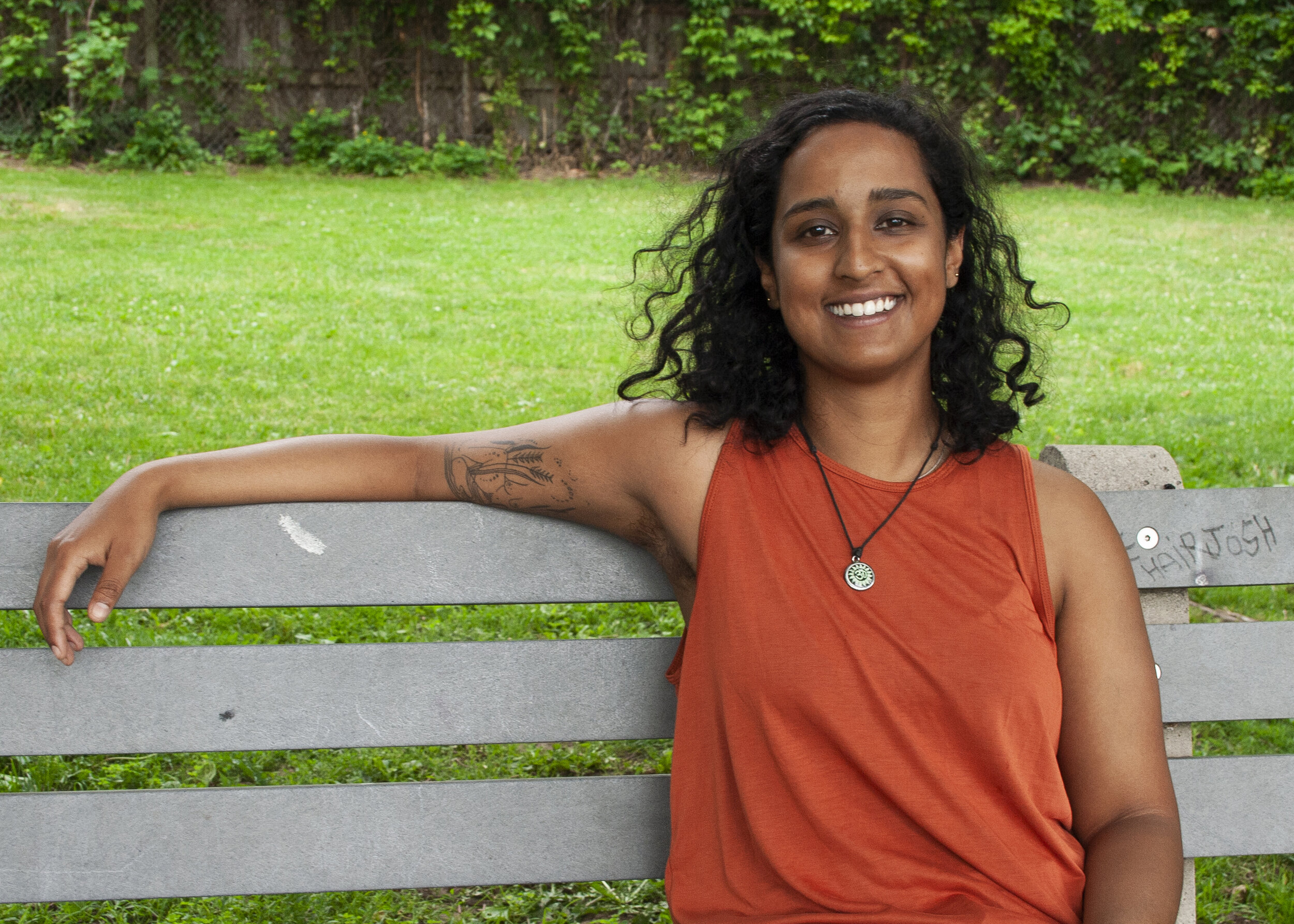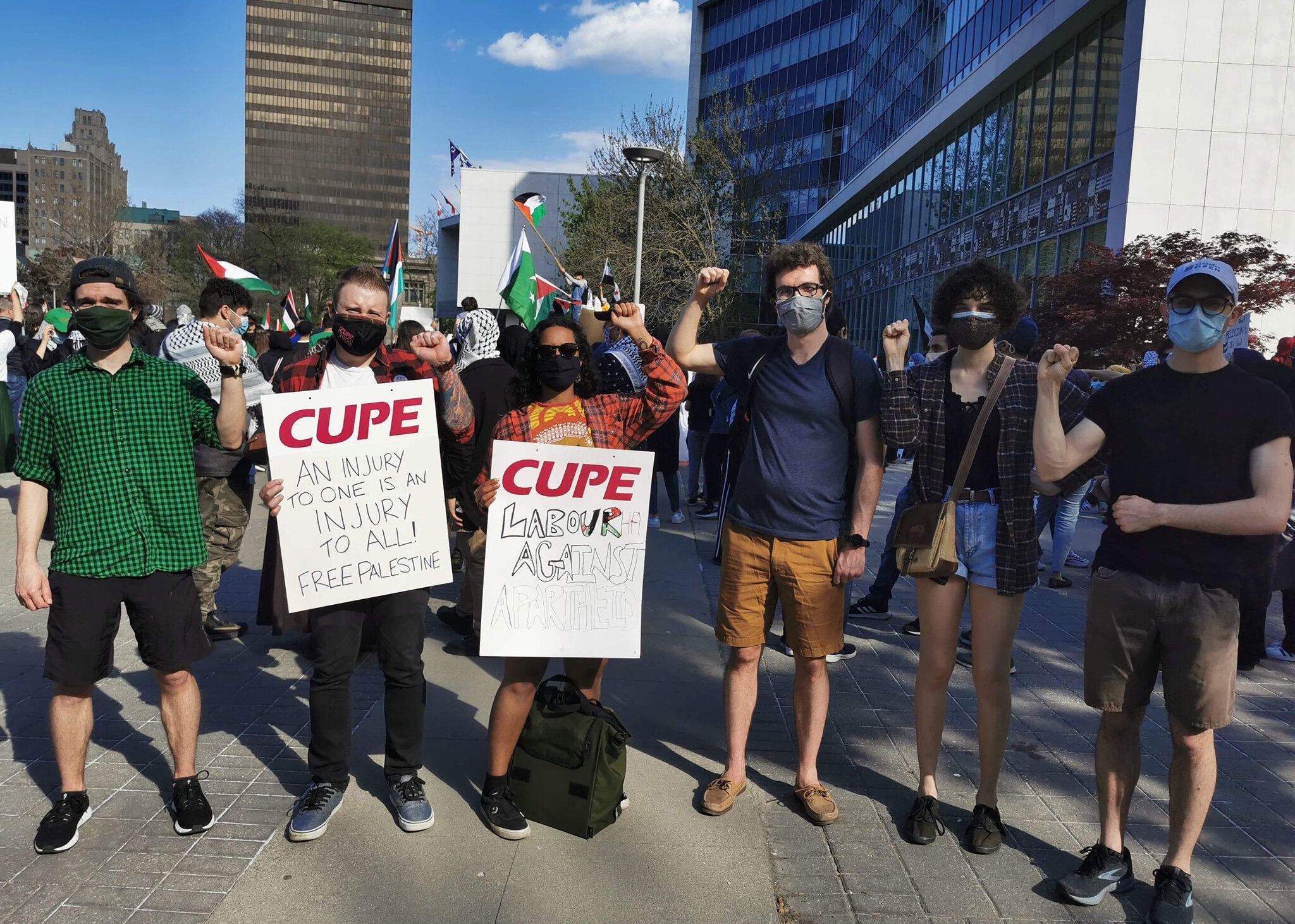Sharoni Mitra, CUPE Local 3906 President
COVID Chronicles
Sharoni Mitra is the president of CUPE Local 3906, representing around 3,500 academic workers at McMaster University. They work hard to balance a heavy workload as a research assistant and a Labour Studies Master’s student with their presidential duties. COVID-19 has revealed the vital role their local plays in protecting academic workers under the stress and uncertainty of the pandemic.



Sharoni began their Masters’ degree in Labour Studies at McMaster two years ago. They moved from Toronto to Hamilton with their cat Matangi and soon became involved with their union. “I think my first union task was ordering pizza for a meeting and I was very enthusiastic about it...and it kind of just worked out that some kind folks pushed me in the right direction to get more involved.” Upon entering their second year of grad school they were elected VP external of CUPE Local 3906. When the presidential role at the union became vacant last fall, they stepped in as interim president and later were elected by the membership.
Sharoni speaks about their path to president as a “very unexpected ascendance.” They share that “by no means was I the most experienced person but I probably ha[ve] the right attitude.” The local represents teaching assistants, research assistants, sessional faculty and postdoctoral fellows at Mcmaster University. As president, Sharoni fills the role as spokesperson of the union saying, “my job is to ensure the local runs smoothly.” They feel that it’s important to think of unions as more than a benefits provider, mentioning the important work of the union’s committees and working groups such as the Indigenous solidarity working group, and the political action committee.
During COVID-19, the needs of members have changed drastically, “everyone is unwell, worn out and...financially strapped.” Sharoni highlights that the shift to online work “...is really insidious for academic workers if it’s not accompanied by meaningful workplace changes. In some cases, student numbers increase significantly per class but no additional support is provided to workers. Not having workloads adequately supported hurts learning outcomes because our working conditions are students’ learning conditions.” Some academic workers have a looming sense that the pivot to online work might be permanent given changes to education in Ontario.
When the pandemic hit in March 2020, many CUPE Local 3906 workers who were from out-of-province returned home, and in doing so, left Ontario. Sharoni was no exception and spent two months with their parents in New Brunswick in the fall. Their employer took the opportunity to challenge the local’s contract language. “McMaster was like, oh if you’re not in Ontario, you’re not part of 3906 and you’re basically not a unionized worker,” Sharoni shares. For 8 months, members of the union who were out-of-province were denied their entitlements. The executive of 3906 was unable to contact workers without coverage because the union’s full membership list was withheld by the employer, who deemed out-of-province workers to be non-unionized with the local.. The matter was finally resolved through arbitration in April 2021. “I think they wanted to test the limits of what they can do and they found a pretty convenient way to do it...any unionized workplace has had their contract language tested by the pandemic.”
Sharoni shares that COVID-19 has exacerbated many issues facing their membership and that as a union, “you’re juggling like 85 different things you need to mobilize and protest against.” Juggling is something they’re accustomed to between presidential duties, their work as a research assistant and their own personal research as a Master’s Student. On struggling to find a balance Sharoni says, “it’s like this procrastination ping pong!” They prioritize their union work first, followed by their duties as a research assistant “...and then my research is constantly the last priority and that’s just how it is.” Despite the heavy workload Sharoni tries their best to engage in healthy coping mechanisms such as exercise and sleeping enough each day. As someone who lives alone, they took up a new pandemic hobby to cope with social isolation, “I’m an uninformed gardener!”
Sharoni notes that general trends in the post-secondary sector, such as low public funding, are threatening workers and the integrity of research. When referring to the insolvency declaration at Laurentian University they say, “the actual problem is relatively simple, which is that universities don’t get enough [public] money...it just points to this wider, you know, long term push, [that] universities are businesses.” For academic workers at CUPE Local 3906, scarce public funding negatively impacts their employment. Low public funding can exacerbate the precarious nature of employment and increase heavy workloads. Despite the challenges within the academic sector, Sharoni knows that unions play an important role. “They [unions] give workers access to infrastructure and resources that they wouldn’t have otherwise, access to historical struggle…[unions] help people organize and develop their power.”
